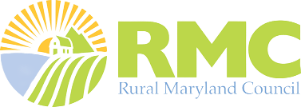Gov. Hogan Creates ‘Office of Rural Broadband’
Governor Larry Hogan recently announced at the 2017 Maryland Municipal League Conference that he had signed an executive order creating the Office of Rural Broadband in the hopes of providing high-speed internet access to the more rural areas of the state.
“It’s about time that happened,” Hogan said. “Very shortly we’ll be appointing a director to lead those efforts who will work with all our state agencies and local governments, along with stakeholders, including the Maryland Broadband Collective, to immediately develop and implement a plan to provide statewide access to high-speed internet to every single corner of the state as rapidly as we possibly can.”
Hogan said the office will coordinate efforts with the Rural Maryland Council on the Connecting Rural Maryland Act of 2017, which was sponsored by Sen. Adelaide Eckardt (R-37) and Del. Johnny Mautz (R-37B), and signed into law by Hogan on May 25.
That law seeks to “improve internet, broadband, wireless and cellular services and accessibility,” in numerous rural Maryland counties, including those on the Eastern Shore, according to a release from the Rural Maryland Council.
View the original article from Delmarva now here.
